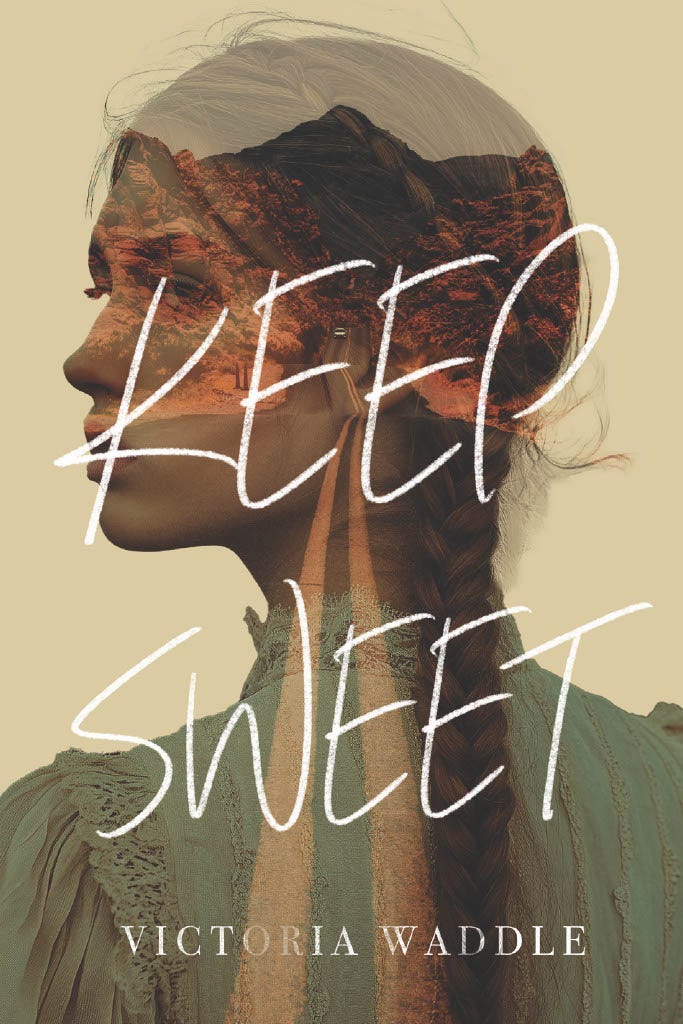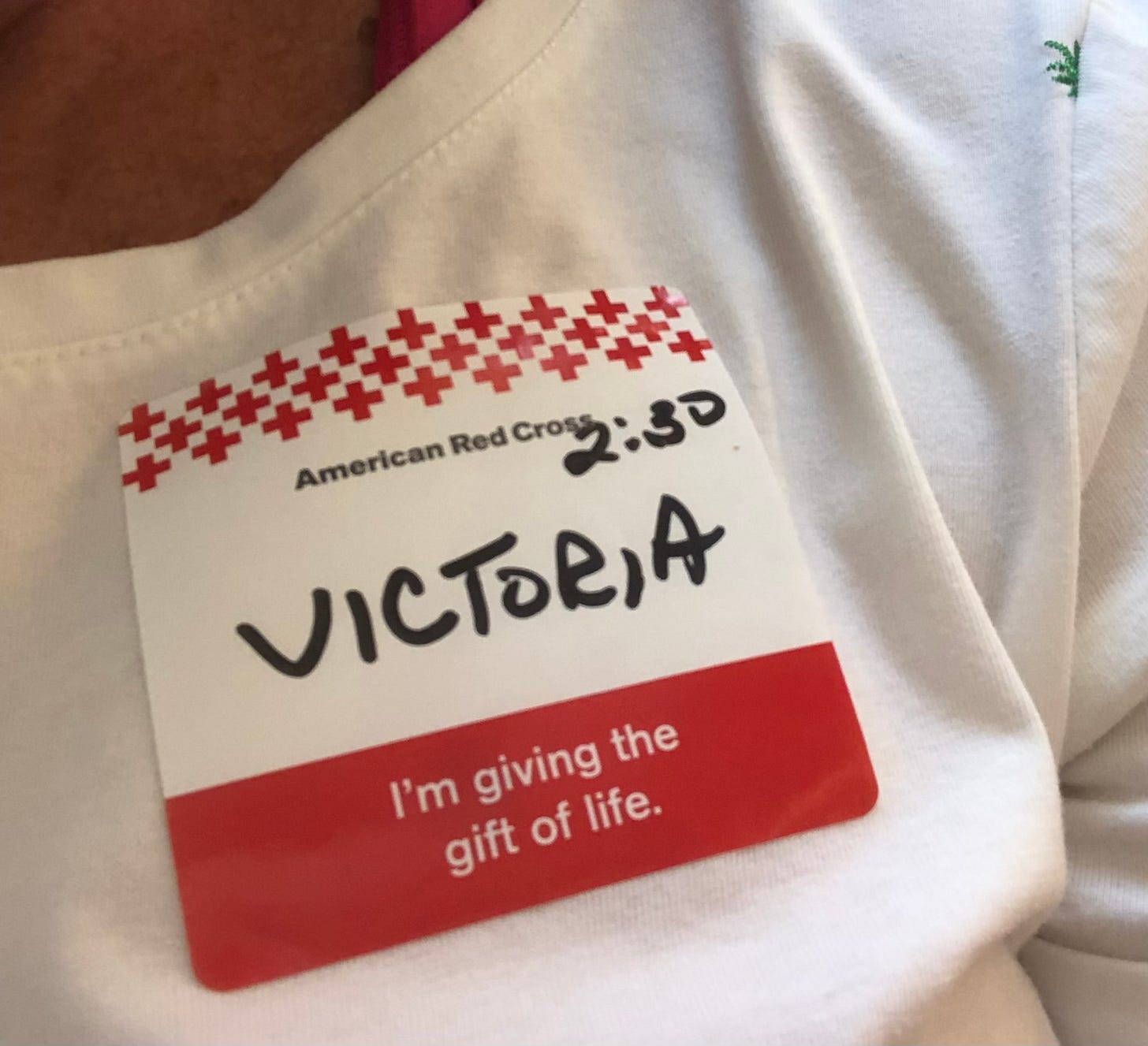Hello Friends,
It’s Mother’s Day in the U.S. I hope people are enjoying it or, if grieving the loss of their mother, are able to enjoy some good memories. On Thursday, I had a sudden sense of panic about having forgotten to buy a Mother’s Day gift. My mom died four years ago; my mother-in-law died six years ago. So—I know these things happen. Dave Barry had a funny post this week about Mother’s Day that you might enjoy. My Sunday plans are to attend a symphony performance and have dinner with my family.
I’ve once again changed my mind about this week’s post. The news cycle has me thinking of so many things (An American pope! Who would have thought it!), but since I’m about writing and books here, my primary focus today is: the Pulitzer Prize for Fiction along with a Pulitzer finalist reading suggestion and the loss of NEA funding. If you happen to need a positive take on other news, I’ve added some quick links at the end.
The loss of federal support for literature
I’ve gotten lots of emails this week about the termination of NEA funding for all sorts of literary institutes and journals. It’s very painful, and I’m sure you are feeling it. And, yet, all the emails contain a message similar to this from American Short Fiction: “We recognize that the new challenges faced by this magazine are just a small part of a much bigger national, and indeed international, upheaval.”
Here’s AGNI:
It’s the common refrain right now, unfortunately: We’ve lost our Federal support. It’s true of so many who were working toward a stable new life in this country; it’s true of many who were fighting disease and food insecurity both here and abroad; it’s true of nearly everyone who proved the value of their work in civil rights or climate change to government agencies that once proudly supported them. It’s true of AGNI now as well. …
In light of everything else, AGNI should not be your first priority. AGNI is not our very first priority. But we know you hold an important place open for the arts, for the written word especially.
I think that sums up what a lot of us feel: something terrible in a larger pool of terrible. I think of funding for literature in the same way I think of libraries: it fills the holes in the collection. As a librarian, I was always looking for titles that would fill those holes. Yes, many of our students read romance or fantasy/sci fi. But the rest of the readers were divided into many areas of interest, and it was our job to serve them, too. To do so sometimes meant getting books from small presses.
The big four publishers are businesses. They focus on titles and authors they believe will be sure moneymakers. (I’d like to argue that there are titles, topics, and authors who would make them money if given a chance, but that’s a subject for another time.) Through grants and donations, small presses and literary journals are able to serve that vast array of readers who want what the big four are not offering. They keep a diversity of ideas, themes, and stories in play. They are able to put out experimental work.1
My book launch for Keep Sweet is coming up next week. My publisher is a literary institute (Inlandia) that has received NEA grants in the past. I wonder whether others will have the same opportunity in the future.

The Pulitzer Prize for Fiction
Percival Everett’s James won the Pulitzer. As I mentioned in a past ‘What I’m Reading,’ I enjoyed the novel, primarily because it corrected the last third of The Adventures of Huckleberry Finn. But its selection for the prize was eye opening for me. I didn’t realize that the judges could just chuck out the finalists (there were three: Mice 1961 by Stacey Levine, The Unicorn Woman by Gayl Jones, and Headshot by Rita Bullwinkel) and pick another book. It makes the award seem sleazy. But then, someone might argue that all three finalists were not worthy. In fact that’s just what
did in The Pulitzer Prizes Are An Embarrassment (Without actually reading any of the three, but by pulling representative lousy sentences from each. Which might not be the best way to judge.)Truth be told, the judges get it wrong often enough.
has published a few Substack posts on the Pulitzer. (Also, she found this year’s winner, James, unreadable.) In “10 Novels Snubbed by the Pulitzer Judges,” she lists some novels she thought should have won over the years. I disagree with a few of her choices. I think Hemingway’s For Whom the Bell Tolls hasn’t stood the test of time. And while I enjoyed The Catcher in the Rye, it’s pretty much a well-written YA novel. (That’s why we had our high school juniors reading it in American Literature class. Not because it was great, but because they would.) I agree with all her other assessments. Two novels that I love and feel were robbed: Death Comes for the Archbishop and The Great Gatsby.In 2012, no Pulitzer was awarded, but Karen Russell’s Swamplandia! was a finalist. I mentioned last week that I enjoyed reading her most recent novel, The Antidote, but it felt like a very good YA novel (is this a theme with me?) and didn’t have the atmosphere and emotional punch of Swamplandia!. Here’s my take on Swamplandia!. I hope you’ll pick it up on your next library or bookstore visit.
Swamplandia! by Karen Russell
First the confession: I think if Karen Russell wrote a manual on how to put a bicycle together, I’d read it. Her language is fresh, original.
I know that startling language alone doesn’t make a book interesting for most people. But we are all lucky in that Russell’s wild imagination extends to the plot of her story as well as to the language. This is one of the most fascinating and weird novels I’ve read.
Much of the narrative is told by Ava although her brother, Kiwi, leaves home and then his story is told in alternating chapters. Ava, Kiwi, and their sister Osceola Bigtree are the children of a couple who own a tourist attraction called Swamplandia! on an island off Florida. They raise and wrestle alligators (which they call Seths). When the mother, Hilola Bigtree, dies at thirty-six from ovarian cancer, the family loses its star and Swamplandia! loses most of its business. The attraction’s doom appears to be sealed when a macabre version of a Disney-style attraction opens on the mainland—The World of Darkness.
Family members try to save their business. Kiwi goes off to the World of Darkness to work; Ava raises a red alligator, hoping that its coloring will fascinate new tourists; and the Bigtrees’ dad goes off to seek backers for his Darwinism feature idea. But with their father gone, Osceola’s (Ossie’s) obsession with ghosts appears to become a possession. She has a spectral boyfriend who seems to inhabit her body. When she disappears, Ava, alone on the island, must face the Underworld and its inhabitants to save her.
This novel is so fascinating because it doesn’t fit the typical supernatural genre. It’s hard to know when ghosts are real; when adults are friends rather than predators; when the past is inhabiting the present; who is in danger and who is safe. Add to this that throughout the story, there is much irony and humor derived from the siblings’ antics, from their utter unfamiliarity with the mainland and behaviors that are common in ordinary lives.
Swamplandia! recalls classic works. The most obvious is Heart of Darkness, but I saw some of Ralph Ellison’s Invisible Man in the way that the characters are losing everything, and even a bit from a short story by Nathaniel Hawthorne (“Young Goodman Brown”) when a hair ribbon from a lost girl floats out of the sky and is caught by the seeker.
I recommend this weird, wild story broadly. If you’re a creative writer and seek good examples, Swamplandia! is a must.
Good news, beautiful things
I have the honor of having an essay about my brother John in the anthology The Loss of a Lifetime: Grieving Siblings Share Stories of Love, Loss, and Hope, which launches on June 17. Editor
discusses it here:
Here are some beautiful orchids I saw this week at a special event in the San Diego Botanical Garden.
It’s been a few months, so I gave blood again. There’s always something we can do.
While future funding is still at risk, a second judge has ruled that the elimination of the Institute of Museum and Library Services is illegal.
Ruling in Federal District Court for the District of Rhode Island in Rhode Island v. Trump (May 6)
This Executive Order violates the Administrative Procedures Act (“APA”) in the arbitrary and capricious way it was carried out. It also disregards the fundamental constitutional role of each of the branches of our federal government; specifically, it ignores the unshakable principles that Congress makes the law and appropriates funds, and the Executive implements the law Congress enacted and spends the funds Congress appropriated.
While I wouldn’t go so far as Dan Rather in calling Bill Gates the ‘good billionaire,’ Gates is fast-tracking his philanthropy in light of the decimation of aid to the poor.
The election of an American pope is such a surprise. Lots of people are reading this as a positive sign for a resurgence of humane practices. Here’s a quick paragraph from Jen Rubin in the Contrarian:
If we pull back, the elevation of Pope Leo XIV might be seen as the third recent “election” (following Canada and Australia) in which an anti-MAGA figure was selected. For those who harbor aspirations for a more humane, rational, decent, and inclusive world, the new pope offers a ray of hope. We badly need a counterpoint to Trump’s dark, cruel, ignorant, materialist, and bigoted outlook. You do not have to be Catholic to hope Pope Leo XIV provides that.
I have a lot ready to go about good books on cults, but I need some glowing things for a bit. Thanks for being here!
The top journals can also be gatekeepers who charge for submissions, but almost never select the work submitted. (They solicit work from top MFA programs and established writers.) That is the subject of a future post. But NEA grants help a broad range of literary institutes.











Thanks for disagreeing with some of my points in such a civil way, Victoria. We'd have heard much more about that fiction Pulitzer had not 2000+ plus newspapers died in the past decade or two and killed the jobs of all the book critics who might have taken issue with the judges' decision (as has happened with past Pulitzer controversies). Glad to see your even-handed response here on Substack.
Interesting insight into the Pulitzer Prize. Another bubble burst for me.